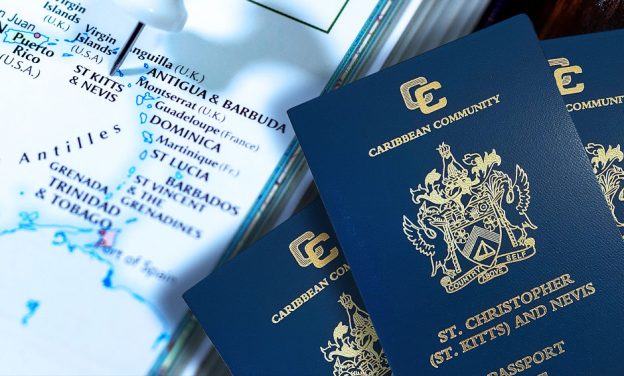If you’re a U.S. investor tracking second-residency and global mobility strategies, the launch of a Golden Visa fund exclusively for Americans in Portugal marks a meaningful shift. Portugal regulators have approved the first fund tailored to U.S. citizens to channel capital into qualifying Portuguese investment vehicles.
This fund offers Americans a streamlined route into the Portugal Golden Visa world—one that blends U.S. tax sensibilities with Portuguese legal compliance. In this article, I’ll walk you through how this new vehicle works, how it differs from older paths, and what you as a U.S. investor must watch (especially on tax and compliance). Along the way I’ll show where a partner like Apex Capital Partners can play a role in your execution.
Why a US-Only Golden Visa Fund Matters
To appreciate this fund’s importance, you need context. For years, American applicants participated in Golden Visa programs by investing in generic Portuguese funds or real estate, often running into friction with U.S. tax rules. Now, the LXL Ventures fund explicitly markets itself to Americans and structures its portfolio accordingly.
By focusing on U.S. investors, the fund aims to handle compliance headaches—PFIC risk, reporting burdens, and cross-border structuring—on behalf of its participants. It also blends asset exposure: about 40 % U.S. market, 35 % Portuguese large market names, and 25 % Portuguese innovation. That gives investors some familiarity while still satisfying Portugal’s mandate for domestic economic impact.
In short, this vehicle bridges the gap between U.S. investor expectations and Portuguese Golden Visa demands—making the program more accessible, less risky, and better aligned for Americans.
How the Fund Maps Into Portugal’s Golden Visa Regime
To qualify, investors must align with the Portugal Golden Visa rules as they stand in 2025. Here’s how the new fund fits:
- The fund must be CMVM-regulated, and must commit a substantial share (often ≥ 60 %) into Portuguese companies or eligible assets.
- The minimum investment still sits at €500,000 for fund-based routes.
- The investor must hold that investment for five years. During that time, you must maintain minimal presence in Portugal (just 7 days per year in the first two years, and 14 in subsequent years, or equivalent flexibility).
- The fund cannot rely on real estate exposure to qualify (the new rules removed residential real estate in many areas from eligibility).
In other words, the fund must act like a bona fide private equity or venture vehicle with Portuguese anchoring.
Where the new fund differentiates itself is in the tax and structural packaging for American investors. According to interviews, the fund was built to unlock Portugal’s new tax benefit scheme for investors moving to Portugal—and to produce U.S.-friendly documentation.
Thus the investor doesn’t just buy exposure; they also lean on a fund designed to satisfy both Portuguese Golden Visa logic and U.S. cross-border tax logic.
What Makes the LXL Fund Unique — and Risky Opportunities
The LXL fund stands out among existing Golden Visa funds in a few ways:
- Specialization to U.S. citizens
Rather than accepting all nationalities, this fund targets Americans. That allows them to bake in U.S. tax compliance from inception—an edge in a landscape where many funds remain agnostic to U.S. rules. - Hybrid portfolio design
With 40 % in U.S. assets, the fund gives U.S. investors exposure they understand, while still satisfying Portuguese requirements via Portuguese investments. - Tailored compliance
The fund reportedly includes or plans to include favorable tax elections (e.g. QEF-like treatment) for U.S. investors.
But with novelty come risks:
- The fund must walk a tight line: it needs to satisfy Portuguese regulators (for Golden Visa eligibility) and U.S. tax authorities. Any misstep in structure or reporting could trigger PFIC penalties or disqualify visa eligibility.
- Liquidity and exit timing matter. If the fund’s redemption terms misalign with your visa timeline, you might get stuck or violate holding rules.
- The Portuguese tax benefit scheme the fund claims to unlock must be properly structured and maintained; you can’t rely on marketing claims alone.
That’s why, if you enter this fund, you want deep due diligence, a cross-border advisory team, and a partner who can negotiate structural guarantees.
U.S. Investors: Key Tax & Structural Pitfalls
Even a well-engineered fund cannot erase U.S. tax law. If you’re an American investor, you must navigate these core challenges:
PFIC Exposure & U.S. Reporting
Many non-U.S. funds qualify as Passive Foreign Investment Companies (PFICs) under U.S. tax rules. If you don’t elect treatment (such as QEF or Mark-to-Market), gains or distributions may be taxed at unfavorable rates, with interest charges.
The new fund claims to address that by structuring U.S.-friendly reporting. But you must verify that intermediary documents—annual statements, investor tax forms—satisfy U.S. IRS expectations. Marketing claims don’t guarantee compliance.
Cross-Border Disclosure
As a U.S. taxpayer, you’ll need to file:
- FBAR if foreign accounts or investments aggregate over $10,000
- FATCA/Form 8938 if your foreign assets cross thresholds
Non-compliance brings stiff penalties regardless of whether Portugal enforces anything.
Timing & Exit Strategy
If you redeem early, before your five-year hold or while your residency permit is under review, you risk invalidating your visa status. You also may generate taxable events. So plan your exit carefully—coordinate your subscriptions, hold period, and visa timelines.
Estate & Gift Planning
Portugal does not impose inheritance tax; but non-spousal heirs face a 10 % stamp duty on Portuguese assets. Meanwhile, U.S. estate and gift tax rules apply globally to your assets. Without cross-border estate planning, mismatches can create adverse exposure for your heirs.
How to Navigate It: A Step-by-Step Playbook
Here’s how you should approach this fund (or any similar American-tailored Golden Visa fund) if you intend to participate:
- Define your core objectives
Are you after European residency, citizenship, mobility, or tax optimization? That drives how aggressive your structure should be. - Engage cross-border advisors early
Don’t wait until deal selection. Use experts fluent in U.S. tax, Portuguese law, and immigration to stress-test fund documents, investor rights, and exit options. - Demand full fund transparency
Check the fund’s shareholder agreements, subscription docs, redemption policies, audit reports, and reporting obligations. Request U.S. tax templates. - Structure your investment cleanly
Use SPVs or feeder vehicles if necessary to isolate U.S. compliance liability. But always ensure the path from you through the structure to the Portuguese fund remains “Golden Visa clean” (i.e. the fund portion counts toward the Portugal requirement). - Obtain your Portuguese NIF and bank accounts
You’ll need a Portuguese tax number (NIF) and possibly a local bank account to facilitate capital flows and documentation. - Submit your Golden Visa application
Incorporate your fund investment, include family members, provide criminal record checks, proof of funds, health insurance, translations, etc. Expect processing times of 9–18+ months. - Monitor compliance and reporting
As the years pass, stay current with fund disclosures, U.S. filings, and Portuguese renewal requirements. - Plan your exit carefully
Align your redemption or transition with visa milestones and tax years to minimize surprises. - Apply for citizenship (if desired)
After five years of legal residence, you may apply for Portuguese citizenship (assuming language and integration requirements).
A partner like Apex Capital Partners can add value by vetting fund structures, coordinating legal teams, and helping manage the complex interplay between U.S. and Portuguese rules. Their ability to align investments with the investor’s entire global profile can turn a risky launch fund into a strategic asset.
Market Momentum & Why Timing Could Favor You
The urgency behind this fund launch comes from a dramatic shift in investor behavior. U.S. demand for Portuguese Golden Visa-eligible funds has exploded: one fund rose from €1.2 million to €16.8 million in six months — a 14× increase.
Historically, real estate dominated Golden Visa capital flows. But after Portugal’s 2023 policy reform removed much of the residential real estate eligibility, fund-based routes now dominate.
Furthermore, Americans now constitute one of the fastest-growing applicant segments. Although they once barely featured, Americans now rank top among nationalities applying in many recent months.
Despite heavier regulation, this moment presents a relative “sweet spot.” The policy changes reduce speculative real estate risks, while fund-based paths reward sophisticated, well-structured capital. If you enter early in a well-engineered fund, you may lock in favorable terms before competition intensifies.
Still, one must not ignore processing delays and backlog in permit issuance. Portugal has struggled with Golden Visa processing backlogs historically.
Thus, your success hinges on having pristine documents, clean legal positioning, and reliable partners—so your application slides through rather than stalls.
Why This Fund Changes the Game — If You Do It Right
This U.S.-targeted Golden Visa fund isn’t just another option: it reshapes how Americans can access Portugal’s residency program.
- It shifts the burden of U.S.-friendly structuring off your shoulders and onto the fund’s design.
- It reduces friction in aligning U.S. tax compliance with Golden Visa eligibility.
- It allows you to invest in a Portuguese vehicle without wrestling with real estate or cross-border fund mismatches.
- It signals maturation in the Golden Visa space: programs now tailor offerings to major applicant groups (like Americans), not just passive capital.
But for all that upside, the margin for error remains high. Enter without vetting, and you risk disqualification from the visa, tax penalties in the U.S., or illiquid positions when your residency depends on them.
That’s why working with a strategic partner—such as Apex Capital Partners—makes sense. If they can help you lock in robust documentation, guarantee compliance, and coordinate your application end-to-end, you convert this fund not into a gamble, but into a deliberate step in your global playbook.
The Way Forward
If you’re an American considering the Portugal Golden Visa, the emergence of a U.S.-centric fund may be your best shot yet. But to capture the opportunity:
- Do your homework: vet the fund, its tax structure, and its alignment with Golden Visa rules.
- Don’t go it alone: bring in cross-border lawyers, tax advisors, and immigration strategists from the start.
- Plan holistically: from capital flows to exit timing to citizenship ambitions.
- Use timing wisely: early entrants may get better structural terms before competition and regulatory scrutiny tighten.
Portugal’s Golden Visa is evolving from a catch-all investor tool to a refined pathway that rewards compliance, transparency, and strategic liquidity. The launch of a fund built for Americans may mark a new era—where U.S. applicants no longer struggle to retrofit generic options, but access a pathway built precisely for their needs.
If you like, I can also put together a side-by-side comparison of this new fund versus existing Golden Visa fund options (for U.S. investors), or help you map out due diligence checklists. Do you want me to draft that next?






